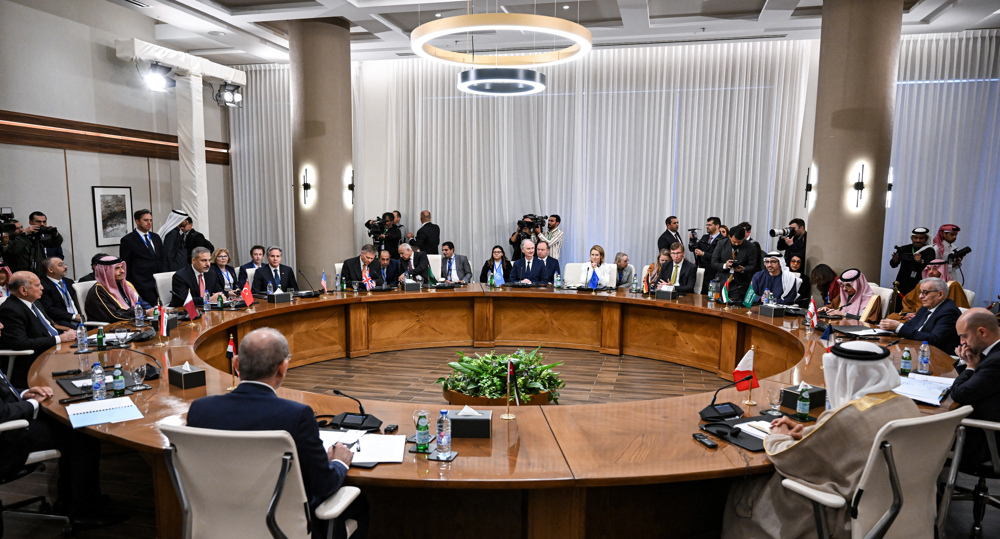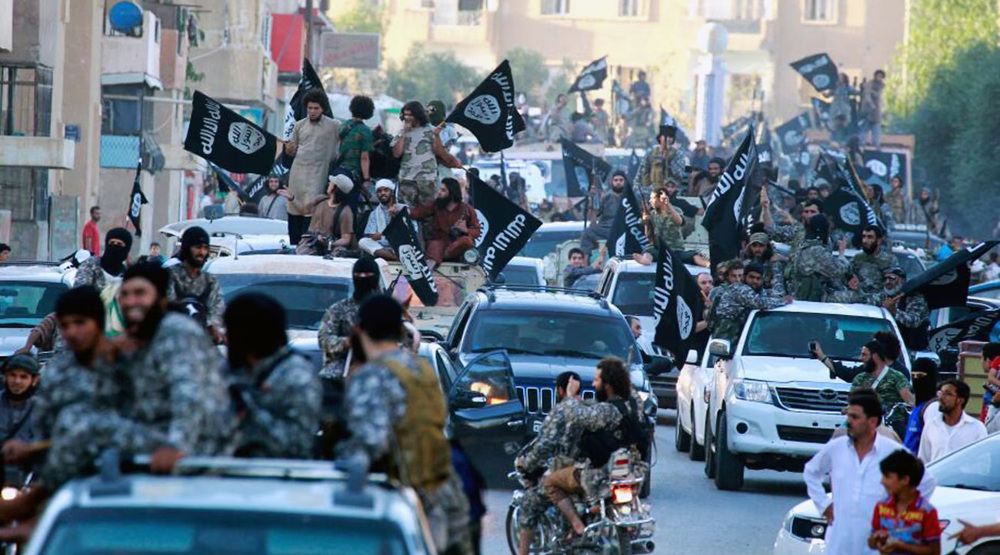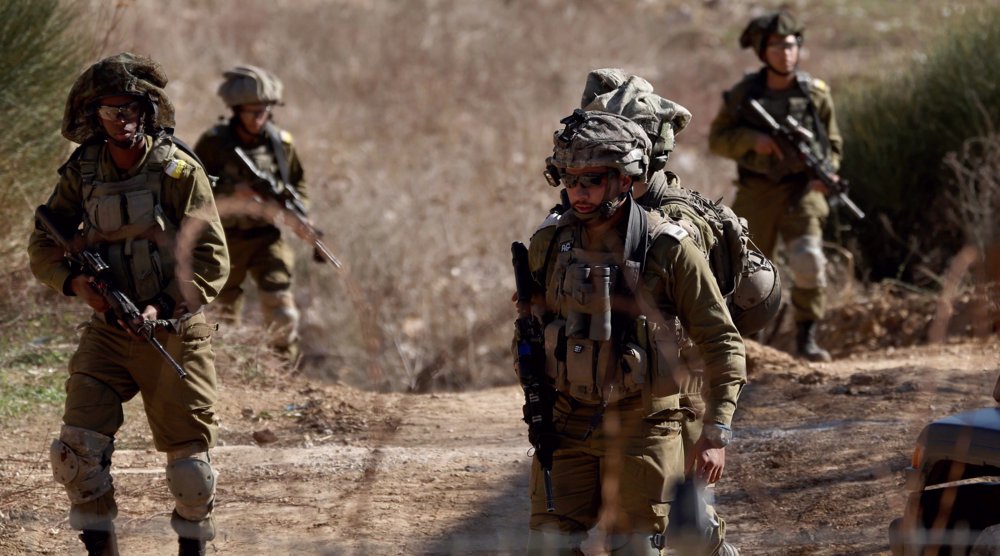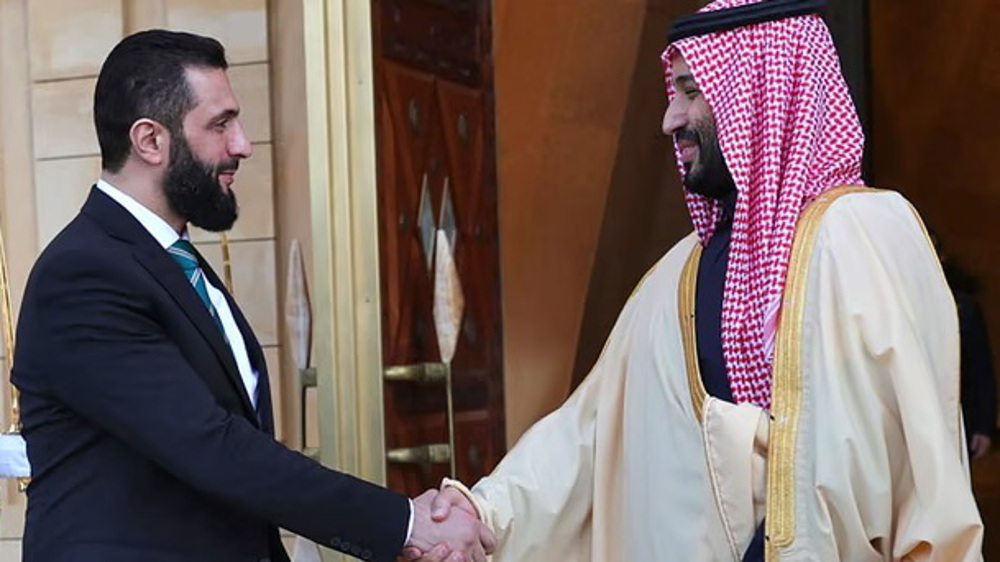Arab FMs affirm support for inclusive, peaceful power transition in Syria
The foreign ministers from eight Arab countries have affirmed support for a peaceful power transition in Syria engaging all political and social forces after the fall of former president Bashar al-Assad’s government.
Foreign ministers from Jordan, Iraq, Saudi Arabia, Egypt, Lebanon, the United Arab Emirates, Bahrain and Qatar issued a final statement after the talks in the Jordanian Red Sea port of Aqaba on Saturday with UN and Arab League support. Arab League Secretary-General Ahmed Aboul Gheit also participated in the meeting.
In their statement, the top Arab diplomats said they had agreed to “support a peaceful transition process" in Syria “in which all political and social forces are represented.”
Armed militants, led by Hayat Tahrir al-Sham (HTS), took control of Damascus on December 8 and declared an end to President Assad’s rule in a surprise offensive that was launched from their stronghold in northwestern Syria, reaching the capital in less than two weeks.
The HTS militant group, supported by the US and its regional allies, has promised to form an inclusive government but the UN says the situation remains "fluid". The transitional government has also insisted that the rights of all Syrians and the rule of law will be protected.
The eight ministers emphasized that the political process in Syria should be supported by “the United Nations and the Arab League, under the principles of Security Council Resolution 2254” of 2015, which set out a roadmap for a negotiated settlement.
They expressed their standing with the Syrian people, offering them help and backing in "this critical phase," and respecting their will and choices.
The Arab diplomats said they would support a transitional rule agreed upon by Syrians, which would enable “a political system that corresponds to the aspirations of all parts of the Syrian people, through free and fair elections overseen by the United Nations.”
According to the statement, the current sensitive stage in Syria requires inclusive national dialogue, and solidarity of all segments of the people to build a unified, free and stable country.
The conferees also warned against “any ethnic, sectarian or religious discrimination”, calling for “justice and equality for all citizens.”
They stressed the importance of halting all military operations, saying state institutions must be preserved to stop Syria from “slipping into chaos.”
The diplomats reiterated the need to boost joint “efforts to combat terrorism... as it poses a threat to Syria and to the security of the region and the world.”
They condemned the Israeli occupation forces' “incursion into the buffer zone with Syria”, denouncing the move as a flagrant breach of international law.
They demanded “the withdrawal of Israeli forces” from Syrian territories.
Israeli military aircraft reportedly carried out fresh airstrikes against military installations in Damascus and its countryside on Saturday, in the latest such acts of aggression since militants brought down the government.
The Arab foreign ministers affirmed the necessity to ensure the voluntary return of the Syrian refugees to their homeland and provide humanitarian aid to the Syrian people in coordination with the UN agencies.
At a meeting on Saturday with US Secretary of State Antony Blinken in Aqaba, Jordan, the UN special envoy for Syria called on the international community to help maintain vital institutions in Syria.
“We need to make sure that state institutions do not collapse, and that we get in humanitarian assistance as quickly as possible,” Pedersen said.
He also called for a "credible and inclusive" political process to form the next Syrian government.
Despite Leader's martyrdom, Islamic Republic firmly in control and punishing the enemy
At least 7 killed in Israeli aggression on southern Lebanon after Hezbollah strikes
Iran writes to UN, warns about dire consequences for perpetrators following Leader's martyrdom
Hezbollah strikes occupied Haifa in retaliation for Leader's assassination
Ansarullah mourns Leader's martyrdom as 'great loss' caused by 'most wretched terrorists'
Hezbollah offers condolences to Iranian nation over Leader’s martyrdom
US-Israeli strike targets IRIB facility; broadcasts continue
IRGC: Latest waves of Op. True Promise 4 led to tanker strikes, base shutdowns, heavy casualties











 This makes it easy to access the Press TV website
This makes it easy to access the Press TV website